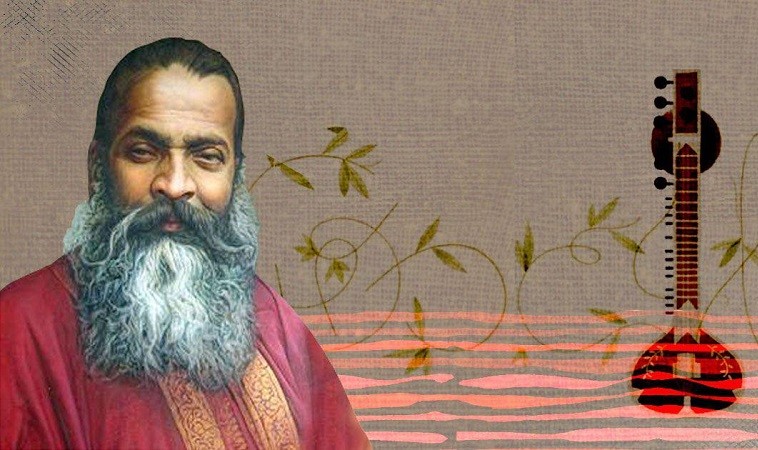
This Day in History, 18, August 1872: Musicians have always held a unique position in societies, acting as cultural custodians, storytellers, and even catalysts for change. In the annals of history, there are musicians whose resonating melodies not only enchanted ears but also played a pivotal role in shaping the course of nations. One such luminary was Pandit Vishnu Digambar Paluskar, a blind musical revolutionary hailing from the heartland of Maharashtra, India. Born on August 18, 1872, in the quaint town of Kurundwad in the Kolhapur District, his journey would eventually intertwine with the struggle for India's freedom.
From an early age, Pandit Paluskar displayed an uncanny affinity for music. His innate talent was honed under the tutelage of his Guru, leading him to embark on a transformative musical journey that would resonate through the ages. The melodious notes that emanated from his fingers and vocal cords held within them a deeper purpose - to free Indian classical music from the shackles of elitism and make it a beacon for the masses.
After traversing the length and breadth of the country, enthralling audiences with his performances, Pandit Paluskar chose to establish his legacy in Lahore. In 1901, he founded the Gandharva Mahavidyalaya, an institution dedicated to the teaching of classical music. This move was revolutionary in itself, for it sought to democratize the art form, breaking the barriers of class and background that had traditionally confined it. The melodious strains of Indian classical music began to reverberate not just within the confines of palaces, but in the hearts of commoners.
Pandit Paluskar's impact extended beyond the realm of music. His resonance with the freedom struggle was unmistakable. His music was imbued with the spirit of patriotism, and through his performances, he sowed the seeds of a cultural resistance against colonial rule. This alignment with the Indian independence movement elevated him to a politically conscious artist. The melodies that flowed from his voice were not merely notes; they were anthems of defiance and unity.
It was within the hallowed halls of the Indian National Congress sessions that Pandit Paluskar's music took on new dimensions. Leaders like Lala Lajpat Rai and Mahatma Gandhi found solace and inspiration in his renditions. His voice became a conduit for the aspirations of a nation striving to break free from the chains of subjugation. Songs like "Raghupati Raghava Rajaram," "Vande Mataram," "Jaya Jagadisha Hare," and "Rachaa Prabhu Toone" became rallying cries for the masses, stirring a renewed fervor for independence.
In an act of undaunted courage, Pandit Paluskar defied a government ban and sang "Vande Mataram" in Raga Kafi during the Cocanada Congress Session of 1923. This rendition was not just a defiance of authority, but a reclamation of India's cultural identity in the face of oppression. His commitment to the cause was unwavering, and he continued to be a beacon of hope and resistance through his music.
The legacy of Pandit Paluskar extended beyond his lifetime. His disciple, Omkarnath Thakur, carried forward the torch of his music and patriotism. Thakur's rendition of "Vande Mataram" at the Constituent Assembly on August 15, 1947, marked a poignant moment in India's history - a moment when the shackles of colonial rule were finally cast off, and the nation embraced its hard-fought freedom.
Pandit Vishnu Digambar Paluskar's contribution to India's freedom struggle cannot be overstated. His melodic symphonies became more than just entertainment; they became the anthems of a movement, the heartbeat of a nation. Through his music, he disseminated the message of freedom among the masses, galvanizing them to stand up against oppression. His journey from the obscure town of Kurundwad to the hearts of millions stands as a testament to the power of music in shaping the destiny of nations. On this day, August 18, let us remember and honor the blind musical revolutionary whose harmonious chords resonated with the rhythm of India's struggle for independence.